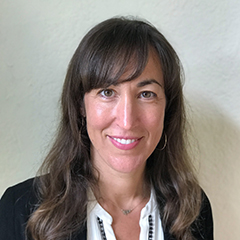Amal Harrati is a demographer and population health scientist with expertise at the intersection of work and health. Her work focuses on four related and overlapping interests: disability policy, health equity, aging, and occupational demands.
Harrati directs a National Institutes of Health-funded project exploring the role of occupational complexity on Alzheimer’s disease, cognitive impairment, and late-life disability onset. She conducts several quantitative studies as part of the Social Security Administration Retirement and Disability Research Consortium. These include an examination of the role of social and racial inequalities in employment outcomes for people with disabilities and a study on racial differences in the effects of the COVID-19 pandemic on older adults with disabling conditions. She leads an analysis of vulnerabilities to natural disasters for people with disabilities, funded by the National Institute on Disability, Independent Living, and Rehabilitation Research. She is an engagement lead for the Equity Technical Assistance Center, which provides health equity technical assistance to the Department of Health and Human Services. She also contributes to the evaluation of the Promoting Readiness of Minors in Supplemental Security Income (PROMISE) demonstration funded by the Social Security Administration.
Harrati has published in peer-reviewed journals including Social Science and Medicine, International Journal of Epidemiology, Journal of Occupation and Environmental Medicine, Journal of Gerontology Series B, Social Security Bulletin, Neurology, The Gerontologist, and Biodemography and Social Biology. She holds a Ph.D. in demography from the University of California, Berkeley.


